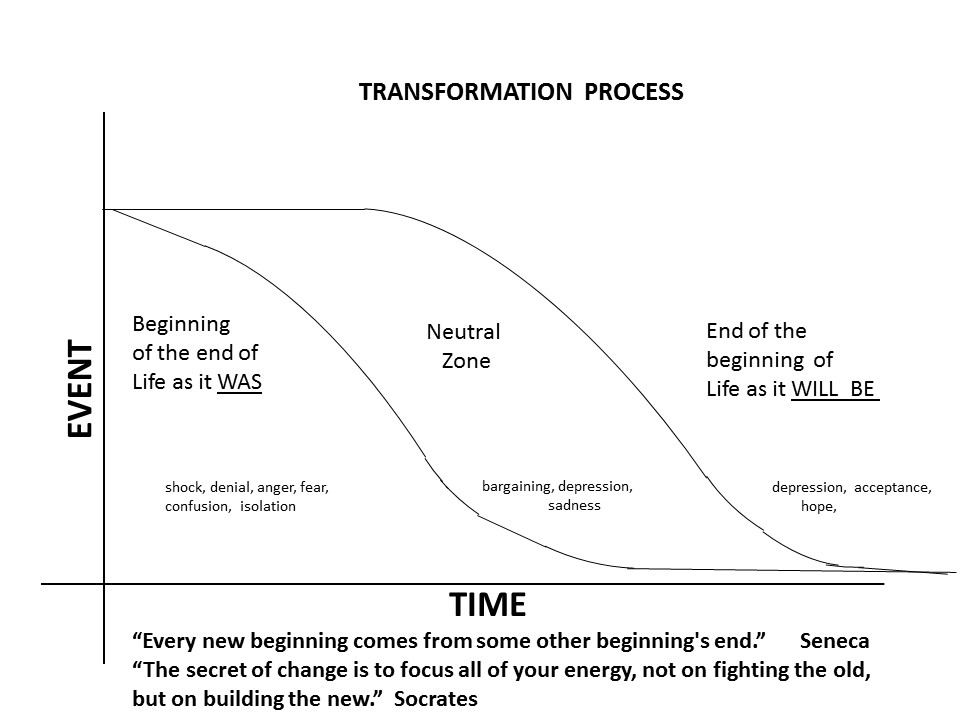Last week I wrote about spiritual attacks and the fact that there are sometimes demonic influences causing dysfunctional behavior and thinking in people. Discerning and addressing such demonic influences is only one reason why spiritual education and counseling is a valuable adjunct to mental health counseling.
A second reason involves the issue of personal identity. Many times people lack sufficient self- awareness, understanding, and self-confidence to be able to stand in their own emotional, mental, and moral strength. Instead, they are constantly looking to others as a frame a reference for who they truly are. It results in eventual loss of a sense of self to the point that they are unable to make sound decisions on their own behalf and maintain good relationships with others. They either wind up in repeatedly abusive relationships or, alternately, end up isolated and alone.
When an individual is given instruction in basic human relationship principles and skills, healthy boundary development, training in discovering her own strengths and values, character development leads to a personal identity that can stand in its own strength, make better decisions, and choose and live in better community environments. These are spiritual-psycho-educational counseling activities that require a significant degree of directed instruction that can be facilitated and made relatable through personal self-disclosure and group interaction. So much of professional counseling is impersonal and frowns on self-disclosure and direction that involves discussion of values that might risk the appearance of any kind of judgement on another’s values.
If someone’s assumptions and beliefs about life have led to cognitive, emotional and behavioral dysfunction, their assumptions and beliefs may well need to be challenged so that assumptions and beliefs can be re-evaluated, changed or reframed to accommodate the reality in which the individual finds herself in the present. Such a challenge can lead to new insights, new hope, and an entirely new view of one’s potential and future. One aspect of cognitive behavioral therapy is called “ACT” – Acceptance Commitment Therapy. Acceptance involves dealing with the reality of life as it is, within the circumstances in which finds herself. This is the first step of any 12 Step Program….coming out of denial, facing facts, being honest about the who, what, where, when, and how of one’s life as it has come to the point that it has. This can be an emotionally painful and destabilizing process. But it is made significantly more bearable and courage to move through it can be found in solidifying one’s self-identity through tapping into and using the internal resource of her spiritual strength. Spiritual capacity is inherent in every human being. It is part of the human capacity for growth along with intellectual, emotional, physical, moral, and social growth capacity. These six components are aspects of personal identity in which we all must grow to achieve what Abraham Maslow called “self-actualization”, becoming our highest and best personal self. And, as Maslow articulated, there are certain needs that have to be met in each of those life realms for the growth to occur.
When these internal self-identity resources are underdeveloped, there are ways to improve them so the individual gains greater personal identity strength and skills for living. But it can only happen if the individual wants it and is willing to cooperate in the process. Change is difficult. It is uncomfortable, but it is ultimately greatly rewarding and worth it. Helping people understand the process of change, how to engage in it with a measure of safety, and see the potential reward is worth the effort for a spiritual educator and counselor. Some students will be ready to jump in and enjoy it, particularly when they believe they are being led honestly in an effort to help them find a better life. When they feel manipulated and fearful that they will abandoned in the process, that those engaging with them are simply “doing a job”, they are less likely to participate fully. Further, if they are being compelled to participate and do not see a personal benefit long term, they will put up more resistance. Fear of the process must be overcome and trust developed. From a Christian spiritual counseling standpoint, that trust is best cultivated first and foremost in God. Most people have negative experiences from having trusted people in the past and been disappointed. Teaching them to trust again, but with a more reliable internal object of trust, the Divine Presence which is available to us all, is the way through the resistance and fear.
Why Spiritual Counseling and Mental Health Treatment Should Be Concurrent
![MPj04389070000[1]_phixr](http://disciplerofself.com/wp-content/uploads/2015/03/MPj043890700001_phixr.png)
